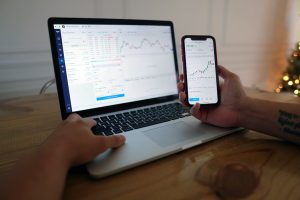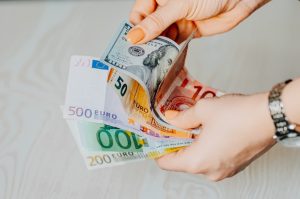The foreign exchange market, commonly referred to as the forex market, is the largest and most liquid financial market in the world. It is a decentralized market where currencies are traded 24 hours a day, five days a week. The forex market is where individuals, companies, and institutions exchange one currency for another.
The forex market operates through a network of banks, brokers, and other financial institutions. These entities act as intermediaries, providing access to the market for traders and investors worldwide. The market is open to anyone with an internet connection, making it accessible to traders from all corners of the world.
The forex market is unique in that it is not centralized. Unlike stock exchanges, there is no physical location where trading takes place. Instead, the forex market is made up of a global network of banks, financial institutions, and individual traders who buy and sell currencies. This decentralized nature of the market means that it is open 24 hours a day, five days a week, allowing traders to buy and sell currencies at any time, anywhere in the world.
The forex market is also unique in that it has a high level of liquidity. This means that there is a high volume of trading activity, which makes it easier for traders to buy and sell currencies quickly and at a fair price. The high liquidity of the forex market is due to the fact that it is the largest financial market in the world, with an estimated daily trading volume of around $6.6 trillion.
The forex market is also highly volatile. Currency prices can fluctuate rapidly in response to a variety of factors, including economic news, political events, and changes in interest rates. This volatility can create opportunities for traders to make profits, but it also carries significant risks. Traders must be able to manage risk effectively to be successful in the forex market.
One of the key benefits of trading in the forex market is the ability to use leverage. Leverage allows traders to control a larger position than their capital would otherwise allow. For example, with a leverage ratio of 1:100, a trader can control a position worth $100,000 with just $1,000 of capital. While leverage can increase potential profits, it also increases the risk of losses.
There are a variety of different trading strategies that can be used in the forex market. Some traders focus on technical analysis, using charts and indicators to identify trends and make trading decisions. Others focus on fundamental analysis, looking at economic data and news events to make trading decisions. Some traders use a combination of both approaches.
In conclusion, the forex market is a decentralized, global market where currencies are traded 24 hours a day, five days a week. It is the largest financial market in the world, with high liquidity and volatility. Traders can use leverage to control larger positions than their capital would otherwise allow, but must also manage risk effectively. There are a variety of different trading strategies that can be used in the forex market, and traders can access the market from anywhere in the world with an internet connection.






